The Middle East conflict currently has a negligible impact on the world economy , but if it escalates, oil supplies and GDP would be severely affected, according to JPMorgan.
On October 13, Jamie Dimon - CEO of the largest US bank JPMorgan Chase - warned investors: "This may be the most dangerous time the world has faced in decades." He said that the wars in Ukraine, Israel and Gaza could have far-reaching effects on global energy, food, trade and geopolitical markets.
JPMorgan issued a report on the Middle East crisis a few days ago, saying that “the conflict between Israel and Hamas has sent shockwaves around the world.” The bank has been studying the potential for escalation and the impact it could have on the global economy and financial markets.
JPMorgan splits into two scenarios: The conflict remains as it is and the conflict escalates.
The market seems to be leaning towards the first scenario . Neither side of the conflict is a major global oil producer. The conflict would therefore not have a major impact on oil production and supply.
Oil prices rose this week, with Brent rising above $90 and WTI rising to $87. But compared to the end of last month, prices are still far behind.
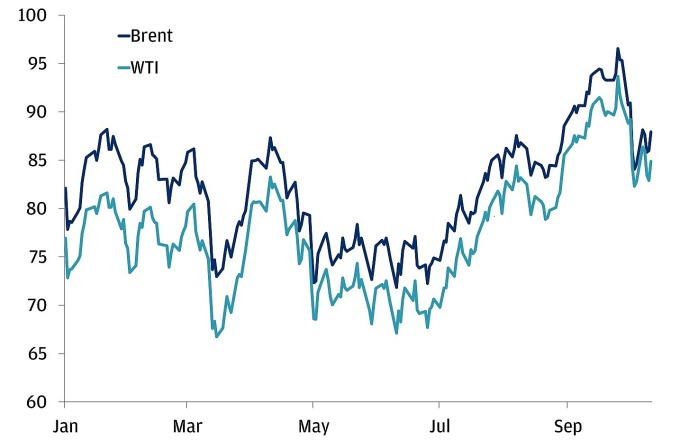
Brent and WTI oil prices in 2023. Chart: JPMorgan
The oil market is now fairly balanced in terms of supply and demand. JPMorgan notes that this is different from early last year, when the war in Ukraine first broke out. At that time, oil supply was already in short supply compared to demand. War news thus further disrupted supply, pushing prices to record highs. Brent at one point approached $140 a barrel.
JPMorgan said the situation means markets can handle it if disruptions are not too severe. For example, the US could tighten sanctions on Iranian oil if it finds evidence of the country’s role in the conflict. Iran currently accounts for 3% of global supply.
A study by Bloomberg Economics a few days ago suggested that in this case, oil prices could rise by $3-4 a barrel from current levels. However, they also agreed that the impact on the global economy would be negligible, especially if Saudi Arabia and the UAE increase supply to make up for the shortfall from Iran.
JPMorgan said the likelihood of an escalation is unclear at this point . However, “an escalation would increase the risk.” Some have drawn comparisons to 1973, when Arab countries banned oil sales to countries that supported Israel. The ban caused oil prices to surge more than 300%, triggering severe inflation and a recession. Stock markets also suffered a prolonged sell-off.
However, there is no evidence that a similar scenario is likely to repeat itself. Relations between Israel and Arab countries have improved, and global supply is no longer concentrated in a few countries as it was in the past.
However, the conflict could escalate if Iran is formally drawn in. This scenario would disrupt important shipping routes, such as the Strait of Hormuz, through which about 20% of the world's oil flows.
According to research by Bloomberg Economics, in the event of an escalation of the conflict, oil prices could rise to $150 a barrel and global growth would drop to just 1.7%. This means $1,000 billion would evaporate from the world's GDP.
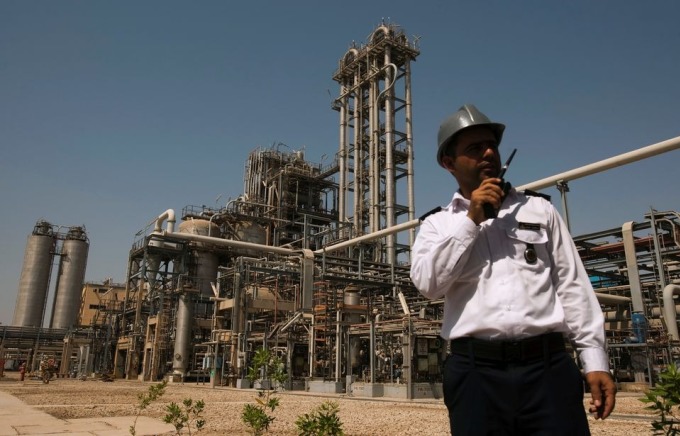
A petrochemical plant in Khuzestan province (Iran). Photo: Reuters
Other oil-producing countries will then try to intervene. The US has recently increased oil supply. This is not enough to stabilize prices, but it has helped to ease some of the pressure.
JPMorgan believes that in the long run, geopolitical events usually do not have a lasting impact on markets. Michael Cembalest - Head of Investment and Market Strategy at JP Morgan Asset & Wealth Management has studied many geopolitical events in the post-war period. In most cases, the impact on markets is only short-term.
A graph of the S&P 500's performance in the 12 months before and two years after each event from 1950 to 2022 shows that on average, the index has been relatively flat.
However, JPMorgan also believes that past performance cannot 100% guarantee current results. Therefore, they advise investors to always diversify their portfolios. This will help investors benefit when the fluctuations end.
As uncertainty mounts, the US bank also believes investors should focus on fundamentals. In the US, for example, despite high inflation and interest rates, the labour market and consumer spending are strong. Business investment and government spending remain stable. As a result, JPMorgan believes the chances of a soft landing (lower inflation and no recession) in the US are increasing, and there are opportunities for investing in stocks.
Ha Thu (according to JPMorgan, Bloomberg)
Source link




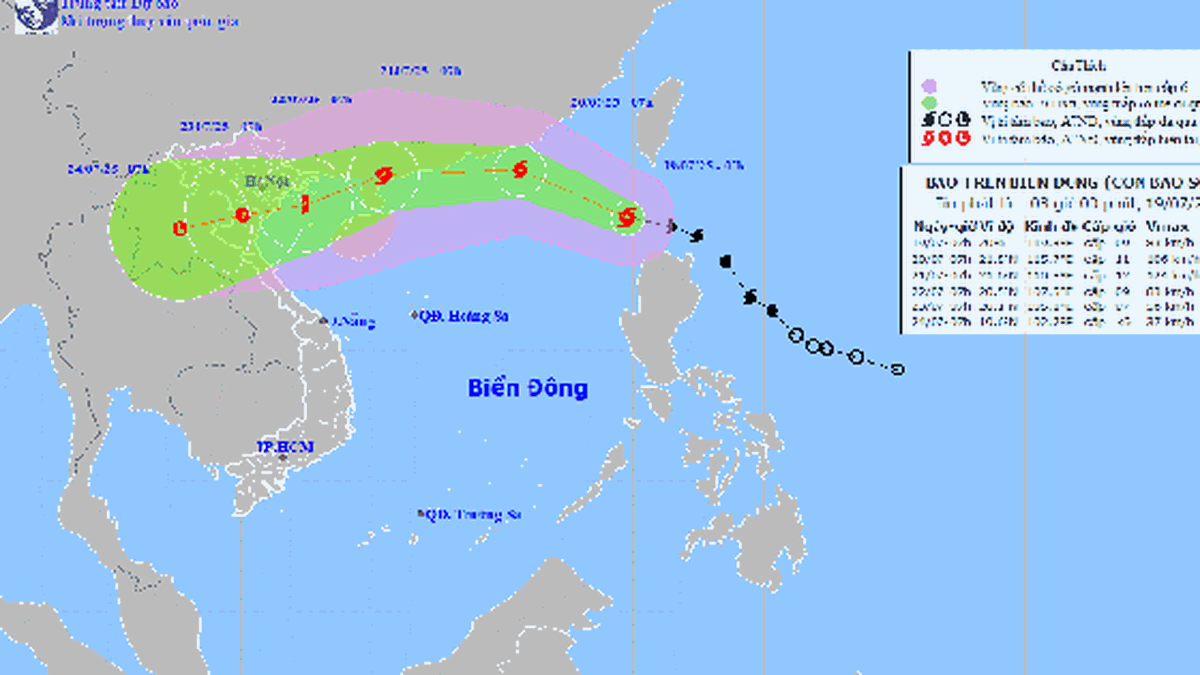























![[Photo] National Assembly Chairman Tran Thanh Man visits Vietnamese Heroic Mother Ta Thi Tran](https://vphoto.vietnam.vn/thumb/1200x675/vietnam/resource/IMAGE/2025/7/20/765c0bd057dd44ad83ab89fe0255b783)































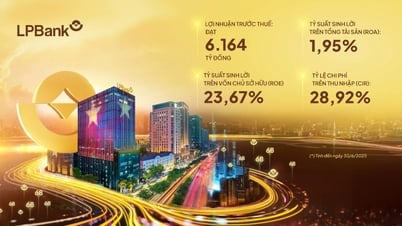








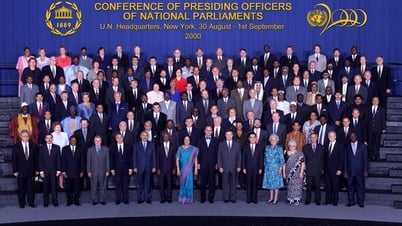





























Comment (0)